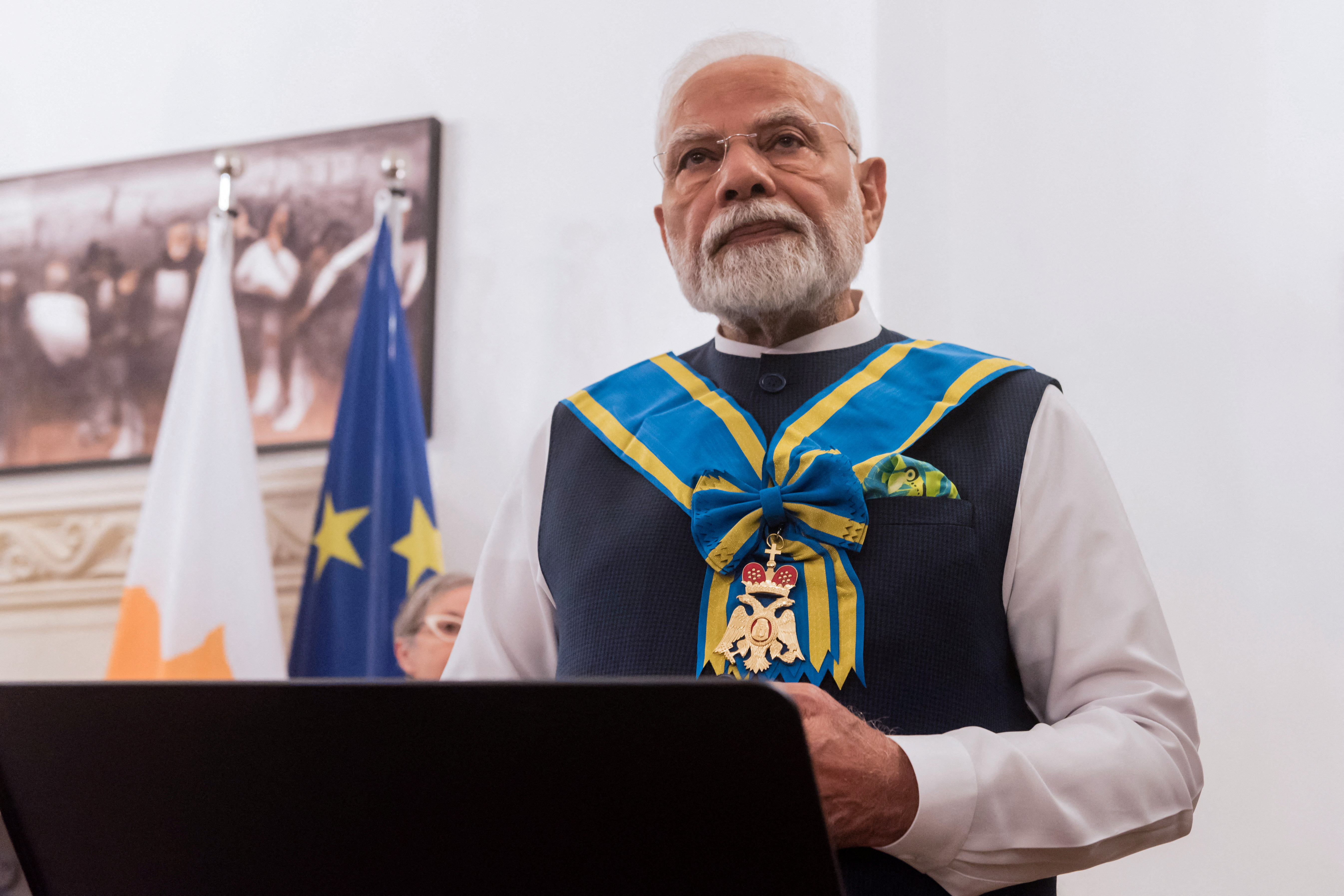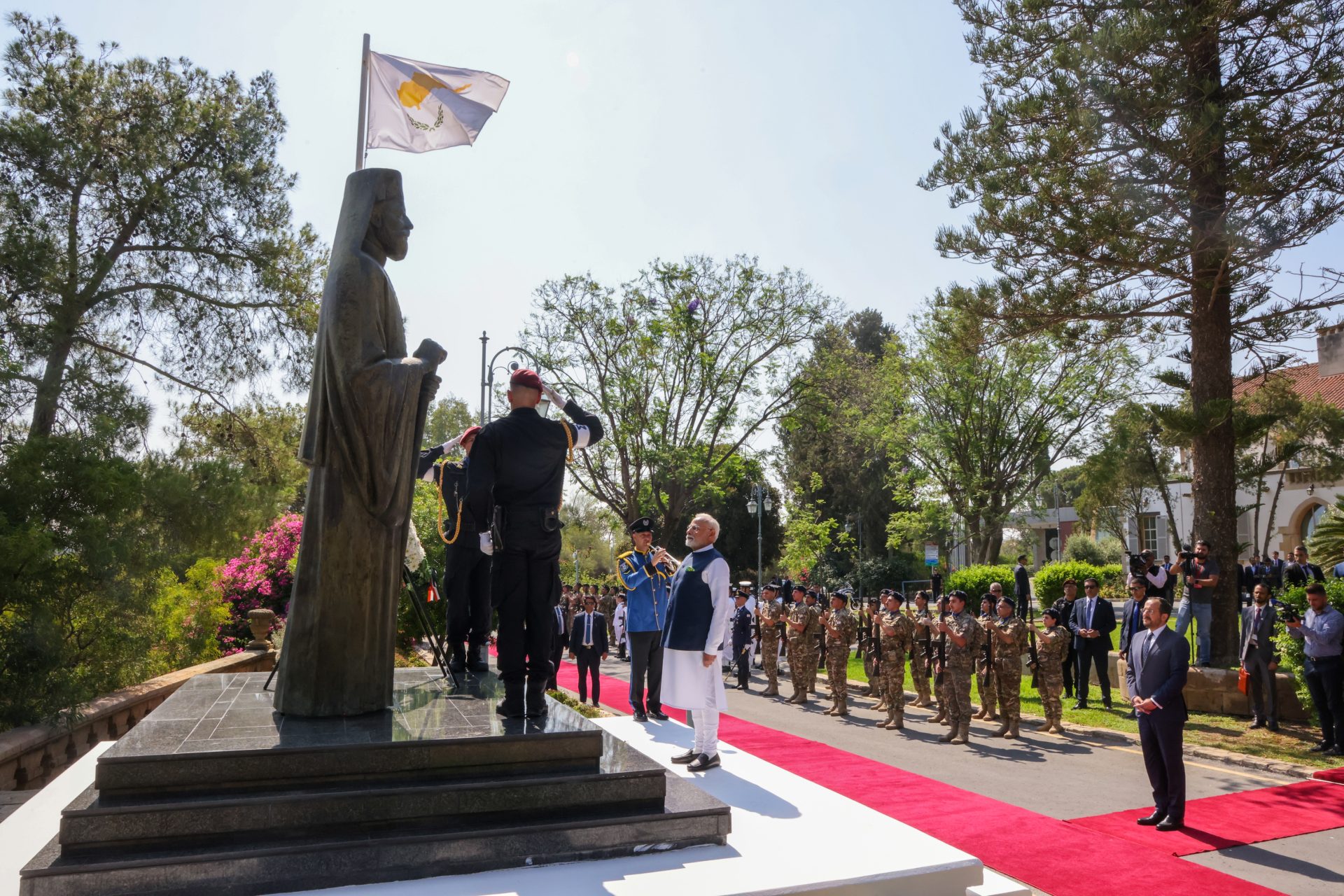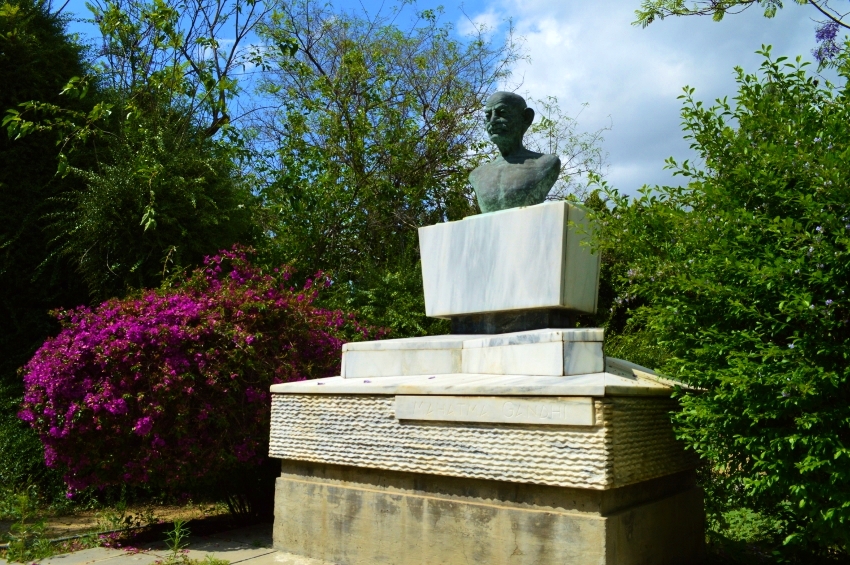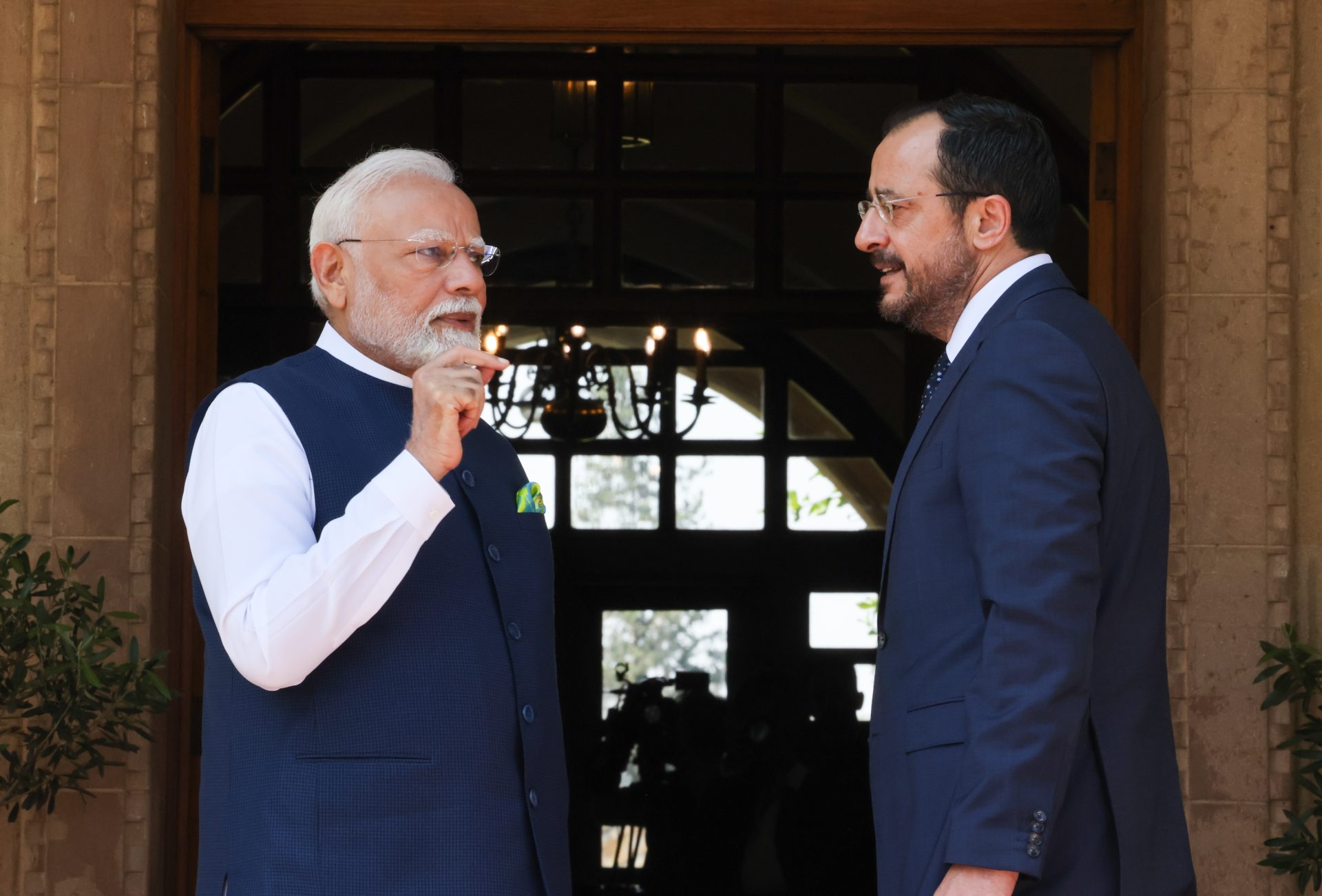Cyprus has been a staunch supporter of deepening the EU-India partnership, which will continue to evolve under Cyprus’ presidency of the European Council next year
By Euripides L Evriviades
Prime Minister Narendra Modi’s visit to Cyprus – India’s first in over two decades and the first of an Indian PM since Cyprus joined the EU – is more than ceremonial. It reflects a strategic recalibration of India’s priorities in the Eastern Mediterranean and Europe.
The visit is no episodic diplomacy. It is part of a broader geopolitical shift, anchored in shared historical values, regional stability and emerging connectivity architectures. The India-Middle East-Economic-Europe Corridor (IMEC) is a characteristic example. Cyprus stands at the intersection of continents, corridors and civilisations. And India is now leaning in.
The roots run deep between India and Cyprus. Trade and cultural exchanges between the two countries date back millennia. Artefacts such as Indian carnelian beads found on Cypriot soil attest to their maritime connections during the Bronze Age.

In the 20th century, the modern bilateral relationship was forged during the formative years of the Non-Aligned Movement (NAM), in a shared struggle against colonialism.
One must recall the moral grandeur of Mahatma Gandhi, whose ideals of non-violence, self-determination and human dignity inspired post-colonial nations around the world. India’s first PM, Jawaharlal Nehru, and Cyprus’ first President, Archbishop Makarios III, were civilisational figures who resisted binary Cold War alignments. Makarios was the only European to attend the 1955 Bandung Conference in Indonesia. The conference was a landmark gathering of post-colonial Asian and African states and the foundational precursor to the NAM, formally launched in 1961 in Belgrade, Yugoslavia.
In 1962, two years after Cyprus gained independence, President Makarios visited India and extended Cyprus’ support in the wake of the 1962 Sino-Indian war, during which Indian territory was invaded. As a principled act of solidarity, it marked the beginning of a series of high-level visits that deepened the emerging relationship.
India was also a key member of the NAM Contact Group on Cyprus at the UN, alongside Cuba, Guyana, Sri Lanka, Mali and Yugoslavia, countries that helped draft and support critical UN resolutions on the Cyprus question. These resolutions are not relics. They remain legally valid and diplomatically consequential, as Cyprus continues to face an existential challenge from Nato power Turkey.
These resolutions still resonate within the international polis. They stand for community of shared norms, sovereign equality and principled multilateralism. They safeguard the international legitimacy of the Republic of Cyprus (RoC). Without them, the diplomatic posture of Cyprus in multilateral fora would be weakened. The support of India within this framework was not symbolic. It was structural and dynamic. I remember it vividly from my years at the UN (1976-1981). It fortified the very architecture of the sovereign standing of RoC.
The contribution of India to the UN Peacekeeping Force in Cyprus (Unficyp) represents political ethos in action. It was foundational. Over 10,000 Indian personnel have served in Cyprus since 1964. India provided three force commanders.
Cyprus strongly supports the aspiration of India for a permanent seat on a reformed UN Security Council, highlighting the vision for a fairer and more inclusive multilateral global order.
Strategic geography, shared concerns
Cyprus is a geostrategic hinge. As the easternmost member of the EU, it lies adjacent to vital shipping lanes, energy arteries and regional flashpoints. It’s important for the security of countries in the region, including Egypt, Lebanon and Syria. Its proximity to Israel enhances its value in regional security architectures.
Cyprus is a dependable, predictable and anchored security enabler, firmly rooted in the EU and committed to upholding regional stability. Cyprus is not merely a security consumer. It is a security producer as well and this is evidenced with crises as the current one.
To consolidate this evolving partnership, Cyprus and India issued a landmark Joint Declaration on June 17 formalising their comprehensive partnership and setting out a shared vision for closer strategic engagement. The declaration outlines collaboration across sectors – sovereignty, peace and security, defence, counterterrorism, connectivity, energy, trade, tourism and multilateralism. It also commits both nations to a forward-looking action plan for 2025–2029. It opens new vistas of engagement and marks the institutionalisation of ties between Nicosia and New Delhi, transforming historical non-alignment into structured strategic alignment.

Cyprus, IMEC and the EU
Cyprus is poised to become an integral component of IMEC, launched at the 2023 G20 Summit in New Delhi by India, the US, the EU, France, Germany, Italy, Saudi Arabia and the UAE. With construction of the EuroAsia Interconnector now underway – an undersea electricity cable linking Israel, Cyprus, and eventually Greece – Nicosia is already playing a role in regional energy integration and electricity security. Cyprus’ position as a digital, logistics and energy hub within IMEC is steadily maturing. The corridor was also discussed during the visit of President Christodoulides (May 2025) to Israel and his meeting with Prime Minister Benjamin Netanyahu.
As Cyprus prepares to assume the rotating presidency of the Council of the EU in the first half of 2026, it could serve as a key interlocutor for stronger India-EU engagement, from digital trade to energy corridors. The EU-India Free Trade Agreement (FTA) is expected to be concluded by the end of 2025. It holds an enormous economic, strategic and technological promise. Cyprus has consistently supported this effort within the EU framework.
As incoming EU council president, it will help sustain the final momentum toward timely implementation. Cyprus was also a staunch supporter of the first EU-India Strategic Dialogue, held on June 10 – an important milestone in deepening the EU-India partnership, which will continue to evolve under Cyprus’ presidency.
While IMEC is viewed in some quarters as an alternative to global connectivity frameworks such as the Chinese Belt and Road Initiative (BRI), Cyprus maintains constructive relations with all major powers. Its participation in IMEC reflects a commitment to diversified, rules-based connectivity and regional stability.
Economic and Digital Ties
Bilateral trade reached $136.96 million in 2023-24, supported by a Double Taxation Avoidance Agreement (DTAA) signed in 2016.
Cyprus has also become a significant investor in India – its 8th largest source of Foreign Direct Investment (FDI) – with over $14 billion in cumulative inflows, reflecting deep trust and long-term engagement.
India, in turn, ranks among the top ten foreign investors in Cyprus. Indian companies are increasingly establishing a presence on the island, connecting markets through services, digital platforms and tourism.
The India-Greece-Cyprus Business and Investment Council (ICG), recently launched, reinforces this economic arc. It aligns with the shared ambition to integrate into the broader IMEC, contributing to the transformation of the region into a corridor of commerce, innovation and logistics.
Both sides are also exploring synergies in fintech, digital public infrastructure and regulatory cooperation. With digital ecosystem of India gaining global traction and Cyprus emerging as a regulated fintech hub, the scope for innovation diplomacy is substantial.
Among the concrete deliverables of the visit were agreements to operationalise cross-border payments via India’s Unified Payments Interface (UPI) and to deepen cooperation between the stock exchanges of both countries. These measures reflect a shared commitment to financial innovation, interoperability and closer capital market linkages.
Defence and crisis cooperation
Cyprus and India have elevated their defence and security cooperation to a new level, reaffirming a shared zero-tolerance stance on terrorism and hybrid threats. Cyprus condemned the recent terrorist attack in Pahalgam and pledged unwavering support for India’s fight against cross-border terrorism. Both sides committed to work for the dismantling of terror networks and have pressed for the swift adoption of the Comprehensive Convention on International Terrorism within the UN framework.
The Cyprus-India partnership now extends beyond counterterrorism to include cybersecurity, defence industry collaboration and maritime security. As maritime nations, Cyprus and India will deepen naval cooperation through port calls, training and joint exercises. Coordination in crisis response, including evacuations and Search and Rescue (SAR) operations, reflects a growing operational convergence rooted in shared values and strategic outlooks.
Cyprus has also played a key role in humanitarian operations, serving as an evacuation hub for Indian nationals during the 2006 Lebanon crisis (Operation Sukoon) and the 2011 Libya crisis (Operation Safe Homecoming).
Diaspora and cultural diplomacy
Over 12,000 Indians live in Cyprus, working in shipping, fintech, IT, agriculture and education. Close to 2,000 are students. Cultural events, language schools and religious festivals build soft power. Delhi has a road named after Makarios. Nicosia has Indira Gandhi avenue. Larnaca honours General Thimayya. A bust of Mahatma Gandhi – India’s founding father and global avatar of non-violence – stands symbolically outside the House of Representatives.
These are not decorative gestures; they are monuments to trust. There is nothing “soft” about soft power. It is enduring influence, rooted in ethos. It is memory diplomacy.
Yoga Day ‘diplomacy’
India is one of the world’s greatest ancient civilisations. It has given humanity extraordinary contributions across mathematics, philosophy, spirituality, medicine and the arts. From the invention of zero and the decimal system to Ayurveda (India’s ancient system of holistic medicine), yoga and the earliest universities, the civilisational impact of India is profound.
PM Modi, a leader who rose from humble beginnings, has emerged as a global statesman shaping the evolving role of India in the world. Visionary and effective, he spearheaded the initiative that led the UN to declare June 21 as the International Day of Yoga in 2015. The resolution – co-sponsored by a record 177 countries, including Cyprus – underscores the unique contribution of India to global well-being and spiritual diplomacy. Philosophy, yoga, Ayurveda, classical music and cinema are enduring vectors of Indian influence. In Cyprus too, yoga sessions, Indian music and cultural festivals vividly reflect India’s soft power in action.

The Ankara-Islamabad axis
Cyprus’ unwavering support for India on issues such as Kashmir and terrorism has not gone unnoticed. Nicosia swiftly condemned the Pulwama attack in 2019 and the recent one at Pahalgam at the EU level. The strategic alignment between Turkey and Pakistan, particularly on Kashmir but also the secretive nuclear weapons cooperation between them that commenced in 1975, has likely contributed to the strategic outreach of India to Greece, Cyprus, Armenia and Israel. Like Cyprus, India confronts territorial challenges and revisionist agendas.
The emerging 3+1 format
India may be joining the trilateral cooperation format between Cyprus, Israel and Greece, expanding it into a strategic “3+1” platform. This would formalise India’s presence in Eastern Mediterranean defence, energy, and digital diplomacy structures – much like the 3+1 format with the US. This trilateral mechanism, initially established to strengthen cooperation on regional energy, infrastructure, maritime security and disaster preparedness, now holds the potential to include India as a strategic partner. With India on board, the format may evolve into a robust framework for collective diplomacy and deterrence in the Eastern Mediterranean and beyond.
India is making a concerted push into the Mediterranean. PM Modi has visited Greece, Italy and France in recent years and has just concluded his visit to Croatia. Cyprus is part of this emerging Mediterranean arc, anchoring strategic outreach of India to the southern flank of Europe.
The Modi visit to Nicosia, is not an isolated act. It reflects converging interests, historical affinities,and a diplomacy rooted in logos: reasoned principle over tactical improvisation. It also points toward a shared telos: an Aristotelian ideal of long-term strategic purpose, rooted in sovereignty, stability and mutual respect.
Cyprus matters to India. India matters to Cyprus.
Euripides L Evriviades is a former ambassador to the US and high commissioner to the UK. He is a former political director of the Cyprus foreign ministry. He is now a senior fellow at the Cyprus Centre for European and International Affairs, University of Nicosia






Click here to change your cookie preferences